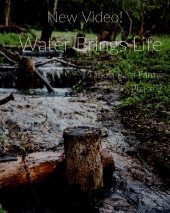https://treeyopermaculture.com/permaculture-design-courses-pdc/weekendpdc/
February and March: Weekend PDC with the Cincinnati Permaculture Institute
TAP INTO YOUR LOCAL ECOSYSTEM AND ITS INHERENT RESILIENCE!!!
Dates and Times:
Friday – Feb 23rd – 6-9pm
Saturday – Feb 24th – 9-6pm
Sunday – Feb 25th – 10-5pm
Saturday – Mar 2nd – 9-6pm
Sunday – Mar 3rd – 10-5pm
Saturday – Mar 9th – 9-6pm
Sunday – Mar 10th – 10-5pm
Friday March 15th- 6-9pm
Saturday – Mar 16th – 9-6pm
Saturday March 23rd- 9-6pm
Sunday March 24th 10-5pm
Locations: Treasure Lake and other tri-state host sites
Facilitators: Doug Crouch, Chris Smyth, and others from the Cincinnati Permaculture Institute and beyond
Course Fee:
700$ ($200 deposit) By December 1st
$750 ($200 deposit) By January 1st
800$($200 deposit) After February 1st
****includes catered lunches ****
For more information and to register details contact the following:
Register Here – At the bottom of the CPI inquiry page.
THE COURSE: Format and Content
The course will be a weekend PDC spread out over five weekends This format allows for extra time for students to digest the material during the week off making it a great format for a holistic learning experience. Students will also receive hands-on experience and also ample work time on the final design project and presentation. The course will be a certified through TreeYo Permaculture as we are guided by Bill Mollison’s curriculum that comprises the 14 chapters of his book “Permaculture: A Designer’s Manual”. Our schedule reflects this commitment and has a strong emphasis on how the design principles and process influence site develop and systems management. We will cover the following topics throughout the course:
Ethics, Principles, and Methods of Permaculture Design
Pattern Understanding: Interpretation and Application
Climatic Factors: Broad Climatic Zones and Microclimate – Effects on Landscape and Design
Water: Harvesting, Conservation, and landscape hydration with Earthworks
Trees and their Energy Transactions: Tree Systems for landscapes and Tree Identification
Soils: Classification, Food Web, and Restoration
Aquaculture: Food Web, Aquatic Plants, Chinampas, Tyre Ponds, Water Quality Parameters
Animal Systems: Integrate worms, chickens, goats, and many other animals in your design
Strategies for Tropical, Dryland, and Temperate Climates: Influences on Vegetation, Housing, and Earthworks
Introduction to Natural Building: Earth as a Building Material
Fermentation and Nutrition: Sauerkraut, Kimchi, Sourdough Bread and Pickles
Local Food Systems: CSA-Community Supported Agriculture, Cooperatives, Food-Coops
Social and Economic Permaculture: Bio-Regional Organisation, Living in Communities, Transition Towns and Local Resiliency
And last but not least: A journey into our local ecosystem that is incredibly biodiverse and a unique food forest in its natural structure. The connections made here in this class will forward your environmental literacy and build community with other proactive stewards.
FINAL DESIGN PROJECTS
The course will end with the required student design projects that will utilize a budding permaculture site in Northern Kentucky and other possible locations. The sites often come from the students themselves or apart of our local network. By using an actual physical site for the design projects, students will gain the experience of completing a full design from walking the land during the initial assessment to mapping and measuring to client interviews and final presentations. It’s a great opportunity to contribute to the local permaculture scene as often the projects are carried onward.
The design project process increases learner retention by allowing for immediate application and direct practice of learned skills while offering a means to evaluates students’ comprehension of the theory and lecture sections of the course. All of which are necessary to become successful, effective, and certified Permaculture designers.
The final design project is also considered to be a direct hands-on project because students will be engaged in a process that will yield a viable design proposal. Our commitment to practicing the design principles throughout the course process itself reinforces the theory and lecture sessions. To bring the material alive we engage in facilitating the course so that numerous learning styles are supported. One of our teaching techniques is through design exercises that compliment the lecture material and add an element of fun to the atmosphere.
and more!
https://treeyopermaculture.com/permaculture-design-courses-pdc/weekendpdc/ 





